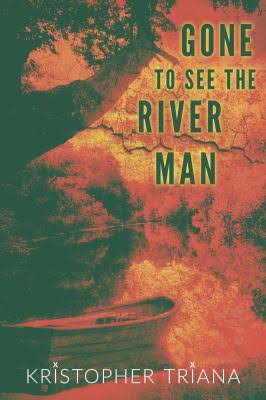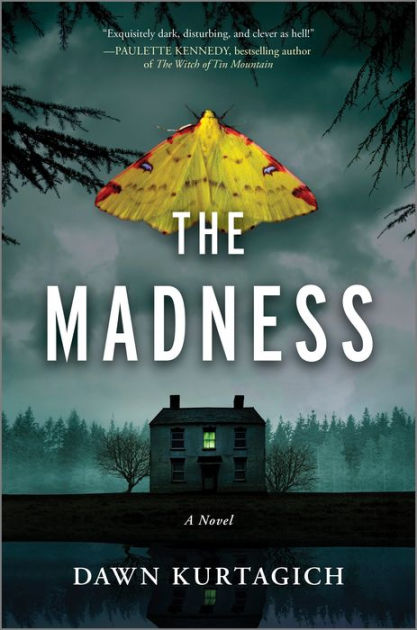It began, for me, with Xena. I was ten years old, living in South Africa. Home alone after school, seeking a snack, perhaps. I heard the haunting melody of Bulgarian Bagpipes lilting from the lounge. I followed the melody. There, on the TV, a warrior woman rode a palomino horse out of the mists, stripped her armor and weapons, and began to bury them. The rest, as they say, is history. I was fascinated and entranced by Xena, by her search for redemption, yes, but also by the continual temptation to give in to her “evil” side. I found the back-and-forth between Xena and her arch enemy Callisto and ex-mentor Alti to be the most riveting thing a pre-teen can experience. La Femme Nikita followed, then Buffy, and Dark Angel—and each of these shows had one thing in common: Strong women. Complex women. And my favourite: women doing unhinged things.
Let me be clear here, not women suffering with mental health struggles, which is not an “unhinged” behavior, rather: with women doing objectively bad things, or women simply doing strong, loud, not-strictly-feminine things. Things that society deems unacceptable, whether rightly or wrongly. When writing The Madness, I wanted to bring the girls to the party, to have my own Scooby-gang where the girls take a stand and play a part. To face and rectify a system that continually places them beneath, a system that first creates them and then punishes them. Why do we love Killing Eve? Why do we root for Villanelle in her horrid behavior, and cheer on Eve on as she spirals from “good girl” into something more unhinged? Why do we watch, fascinated, as nurse Ratchet behaves badly, cheer as the Bad Moms behave badly, and celebrate when Harley Quinn bashes brains? Is it catharsis? Emotional release by proxy? We love women leaning into their rage, their darkness, their power—women taking up space. Are unhinged women our new anti-hero? The new villain we love to adore? I, for one, hope so, but I also know this isn’t a new “trope”. Perkins Gilman’s The Yellow Wallpaper, Bronte’s Wuthering Heights, and Chopin’s The Awakening (to name a few), illustrate this fact. It does seem, however, that we are salivating for this type of story more than ever before.
To celebrate the release of my debut adult novel, The Madness, where a group of misfit outsider women take on a systemic (and supernatural) evil, I’ve put together a list of some of my favourite novels that feature unhinged women. Proceed with caution.
Cursed Bunny by Bora Chung
Let’s begin with a book of short stories to get our juices flowing, shall we? I loved some of these stories far more than others, but the ones I loved, I loved. I am an avid Weird Fiction girlie, and proudly so. The first two stories in this collection alone are worth the book—“Head” and “The Embodiment”—and both fall into my definition of Unhinged Women. In the first story, a woman finds a disembodied head in her toilet one morning, and continually attempts to flush it away. It is a nauseating examination of the disintegration of her identity after being talked into ignoring the problem by the family around her. “The Embodiment” follows a woman who becomes mysteriously pregnant after being prescribed birth control tablets to control her heavy period. It examines patriarchal power structures in a society that dictates the value of a woman through the lens of marriage and motherhood, and is delightfully gross. For short, sharp shocks, give this one a go.
The Vegetarian by Han Kang
In the tradition of Atwood’s The Edible Woman, Kang’s The Vegetarian follows Yeong-hye as she attempts to purge her mind by renouncing the eating of meat, which is, in her culture, a shocking act of rebellion. Initially passive, her rebellion takes on more and more extreme forms, leading to a complete and total metamorphosis. The Vegetarian is told in three POVs, none of which are her own, a consciously-chosen device, I think, to aid in the demonstration of her apparent passivity. Despite all this, Yeong-hye has the power. Her “unhinged” actions terrify those in her life, pushing them away, until she realizes her ultimate fantasy—her ultimate power, and is finally transformed.

Gone to See the River Man by Kristopher Triana
There are many, many trigger warnings here, so please look them up before you read if you need them. This short novel follows Lori, a woman with an unhealthy romantic obsession with killer-of-women, Edmund Cox, who is currently locked in prison. They have a bizarre relationship conducted via letter. When Edmund writes and gives her a task to complete, Lori accepts as a way to prove her love. The task? Simple. Deliver a key to The River Man. Lori jumps at the chance, and brings her disabled sister along for the ride. Lori is, questionably, as unhinged as Edmund Cox is, and she is a deeply flawed, mostly unlikable character… and one I couldn’t stop reading. On her journey, Lori did unspeakable things, and I kept turning the pages anyway. For a truly unhinged experience, definitely give this one a go.
Grotesque by Natsuo Kirino
I love a good fictional unhinged friendship—or frenemyship. Grotesque follows the history of two prostitutes that have been brutally murdered, from their time at a prestigious girls’ high school through the twisting pathway to their ultimate end. Narrated by the unemotional sister of one of the victims, the novel delves into the strict societal expectations that both women have been up against their entire lives—expectations revolving around their sex, their gender, and the expectations of their perceived value— and how it changed and manipulated their characters over the course of years. Grotesque is a brilliantly executed jumble of unreliable narrators with a truthful story at its heart, an examination of the ways that society makes monsters of women by withholding freedom and equality.
Confessions by Kanae Minato
After her four year-old daughter drowns in a pool, teacher Yuko Moriguchi has decided to retire. But not before she teaches her final lesson. There is something very compelling in the cold manner that Yuki delivers her narrative, slowly closing in on the murderers of her precious child, until they realize with horror the revenge she has already put into place. Told from various perspectives, but circling back to Yuki for her final nail in the coffin, this short read is a sharp shock that speaks to moral ambiguity, grief and vengeance.
The Lost Daughter by Elena Ferrante
Leda—middle aged, divorced, and alone now that her two grown children have left her to live with their father—takes a trip to the Ionian coast for her own enjoyment, surprised at the sense of relief and freedom she feels now that her daughters have gone. While there, she becomes entangled with a young mother named Nina, and Nina’s young daughter. Through a seemingly trivial event, the theft of a doll, Ferrante explores female identity, and the ambivalence some women feel towards motherhood, and the internalized guilt, shame, and rage it engenders. Leda herself is an oft-aloof character with a certain coldness about her, often times vindictive, and withholding, and full of deep resentment. In stark contrast to the ideal of motherhood society presents as sacrificial, pure, self-effacing, and submissive. As Leda meditates on the happenings around her through the lens of memory, she notes that “No one depended anymore on my care and, finally, even I was no longer a burden to myself.” Perhaps, one day, a mother contemplating the very natural and complex emotions around motherhood won’t make an “unhinged” list, but for now, it remains.
Diavola by Jennifer Marie Thorne
In this delicious vacation-horror, we follow Anna as she navigates a dreaded family holiday to Italy. Anna’s voice is dry, jaded and wholly refreshing as she attempts to survive her boisterous, often irritating family. The location of their vacation is the beautiful Monteperso villa. It has everything you could want: gorgeous views, proximity to a vineyard, pool, vengeful ghost. The usual. Anna is such a fun anti-hero—villain, even—and watching her navigate a haunting both by her family and a vengeful la dame blanche was the icing on a very delicious cake. Anna’s casual acceptance of her own haunting was hilarious and truly unhinged.
Maeve Fly by CJ Leede
Maeve, sarcastic and apathetic, but also somehow innocent, ditches her nighttime routine of reading in bars like her literary heroes, and instead begins to explore a darker hobby. One with a lot more blood. This entire novel is one unhinged descent into inhumanity, and none of the characters are likeable in any way. Yet we keep reading. “Men have always been permitted in fiction and in life to simply be what they are, no matter how dark or terrifying that might be. But with a woman, we expect an answer, a reason.”
Check trigger warnings here, folks!
The Haar by David Sodegren
Muriel lives on a remote Scottish island that is being threatened by a large corporate property developer. Most of her neighbours have already capitulated and sold their land, but Muriel and a straggling few are standing strong. Muriel feels hopeless until she discovers… something hiding in the haar, the mists that cover the shoreline. Muriel, a woman in her eighties, is undoubtedly unhinged in the best way. Not only is she a one-woman army against a multi-millionaire villain, but she is also willing to work with a dangerous amorphous blob without many qualms, and as the body-count rises (and body parts liquefy), she goes with the flow. Maud is the granny we all need!
Take a break from the news
We publish your favorite authors—even the ones you haven’t read yet. Get new fiction, essays, and poetry delivered to your inbox.
YOUR INBOX IS LIT
Enjoy strange, diverting work from The Commuter on Mondays, absorbing fiction from Recommended Reading on Wednesdays, and a roundup of our best work of the week on Fridays. Personalize your subscription preferences here.

